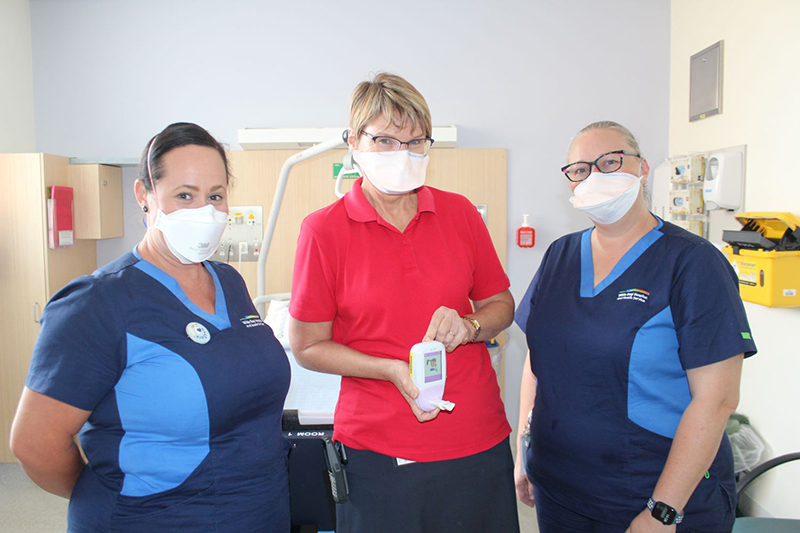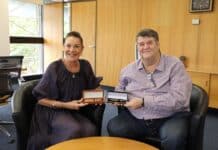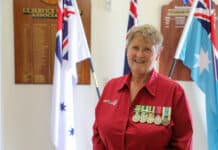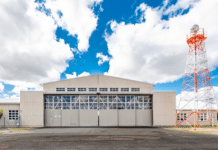
A special device is now being offered at antenatal appointments to help and support mums-to-be and their partners in making the choice to quit smoking in order to provide their baby with the best start at life.
In 2019, 20 per cent of women within the Wide Bay Hospital and Health Service region smoked at some time during their pregnancy (383 women), which was 73 per cent higher compared to Queensland.
WBHHS Chief Executive Debbie Carroll said while the figure had declined in recent years, smoking remained the leading preventable cause of death and there was a need for continuous improvement.
“Smoking during pregnancy can result in a far higher risk of miscarriage, stillbirth, premature birth, an underweight birthweight or damage to your baby’s heart and lungs,” Ms Carroll said.
“Our antenatal teams have been working alongside Queensland Health’s Preventive Health Branch to roll out several new initiatives so support women to have healthy pregnancies.
“So far the results are really encouraging, and I congratulate all of our local families who have made the decision to quit to improve their own health and give their babies their best start in life.”
WBHHS Acting General Manager of Family and Community Services Carol McMullen said during antenatal appointments, pregnant women and their partners could now choose to be measured by a breath carbon monoxide monitor.
“The familiar traffic light system provides a live reading of carbon monoxide of the mum-to-be and/or her partner and the midwife discusses the effects it will be having on their baby, which for some, can be quite confronting,” Ms McMullen said.
“It’s visual motivation to quit smoking and reinforces our traditional advice about the benefits of quitting, such as increased oxygen and nutrients to baby and reduced risk of complications.
“Every cigarette you smoke has an immediate effect on both you and your baby, but thankfully when you quit, your body starts to get rid of the chemicals immediately—which is good for you, and for your baby.”
Ms McMullen also encouraged local pregnant women, their partners, and women planning on falling pregnant within the next six months to register for the ‘Quit for You… Quit for Baby’ program.
“It’s a free Queensland Health program that provides tailored, confidential support for smokers with an optional 12 week supply of nicotine replacement patches, gum or lozenges,” she said.
“Our health service has also been participating in a ‘takeaway’ pack trial which offers mums-to-be timely access to nicotine replacement therapy products but requires a commitment to contact with Quitline.
“The trial has been a fantastic collaboration between the Preventive Health Branch and WBHHS, and we’ve certainly seen an increase in the number of referrals to the free support service.
“The partnership has also been beneficial for our midwifery staff who have received further education around smoking and pregnancy and been trained and upskilled in how to use replacement products.
“This empowers them to provide confident and informative advice to members of our community.”
Ready to have a conversation about quitting?
If you’re planning a pregnancy, you’re pregnant or breastfeeding, now is a good time to quit smoking.
To find out more, speak to your midwife or health professional, call Quitline (13 7848) or complete the Request a Quitline Call form to have a counsellor call you.
Quitline’s Smoke-Free Families program
Support also doesn’t stop once your baby has arrived – Quitline has a free Smoke-Free Families program which is available to parents, carers and guardians of children aged three years and under, which combines multiple quit support calls with a nicotine replacement therapy supply.







